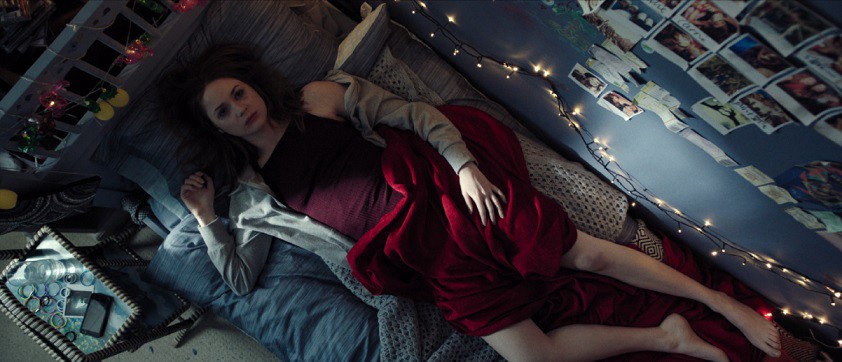Karen Gillan is a Scottish filmmaker and actress. Her directing credits include shorts “Coward,” which screened at Edinburgh Film Festival, and “Conventional.” “Jumanji: Welcome to the Jungle,” “Guardians of the Galaxy,” and “Doctor Who” are among her acting credits.
“The Party’s Just Beginning” will premiere at the 2018 Tribeca Film Festival on April 22.
W&H: Describe the film for us in your own words.
KG: A tale of loss and lack of closure. What it is to be left behind, and at the brunt of someone else’s choice to end it all.
W&H: What drew you to this story?
KG: I read a statistic that the suicide rates in the Highlands of Scotland are significantly higher among young men than anywhere else in Scotland. This film is an exploration as to why that might be the case.
W&H: What do you want people to think about when they are leaving the theater?
KG: If I can start any conversation with this film then I am happy with that. Also, maybe chips?
W&H: What was the biggest challenge in making the film?
KG: The biggest challenge for me was probably the multiple roles I took on. I wrote, directed, and acted in the film which was an exercise in multitasking. It was incredibly rewarding, and I certainly had the ultimate shorthand with myself. However, it was non-stop. All day. Never a moment’s downtime. I was so stimulated by the whole experience that it didn’t matter but it was an intense ordeal.
W&H: How did you get your film funded? Share some insights into how you got the film made.
KG: I worked with my producer, Mali Elfman, to source the funding. We travelled to the UK together, and did so many meetings. We went at it with such gusto, and eventually Mali found Mt. Hollywood, a company devoted to supporting female filmmakers. We collaborated with them on the project, and were given a huge amount of creative freedom, which I was very grateful for.
W&H: What does it mean for you to have your film play at Tribeca Film Festival?
KG: It’s so incredibly exciting and thrilling to have my film play at Tribeca. I have been to Tribeca once before with a film I acted in, called “The Circle.” I remember watching the movie, and longing to have my film play in a place like that. And now it’s happening! I can’t quite believe it. To be returning to the festival as a filmmaker means the world to me.
W&H: What’s the best and worst advice you’ve received?
KG: Best advice from a director was, “Free yourself up a bit.” It might sound throwaway but that is so completely key to being an actor. To be free enough to just listen to the other actor, and not worry about what you are doing. To exit your own mind, and be present with the other actors, and trust yourself enough to take risks.
Worst advice? Um, probably from teachers telling me to listen to them instead of putting forth my own ideas. From a very young age I have offered up the way I believe things should be done. So it makes sense that I’ve ended up directing.
W&H: What advice do you have for other female directors?
KG: We need more of you. So go for it! And if you have to be disagreeable, then be disagreeable. Some of us, as women, have been conditioned to be agreeable. Sometimes even rewarded for it. But that’s not how we are going to get on in this field. I pride myself in always being kind, and I treat every person I meet with the same amount of respect. But if don’t agree with something, I’m not going to go along with it.
W&H: Name your favorite woman-directed film and why.
KG: “Ratcatcher” by Lynne Ramsay. She is one of my favorite directors. I find her films to be so beautiful, raw, and just complete works of art. She captures people in the most detailed, specific way, and also has such a sense of identity to her films. When I’m watching one of her movies, I know it’s a Lynne Ramsay movie. Now when I see a new Lynne Ramsay movie I find myself almost applauding when I see a Ramsay-ism. She has a voice, style, and originality. A lot of people don’t, but she does.
W&H: Hollywood and the global film industry are in the midst of undergoing a major transformation. Many women — and some men — in the industry are speaking publicly about their experiences being assaulted and harassed. What are your thoughts on the #TimesUp movement and the push for equality in the film business?
KG: I support this wholeheartedly. Freedom of speech is imperative, and we should never suppress that. Hopefully this will lead to positive changes in the industry.







